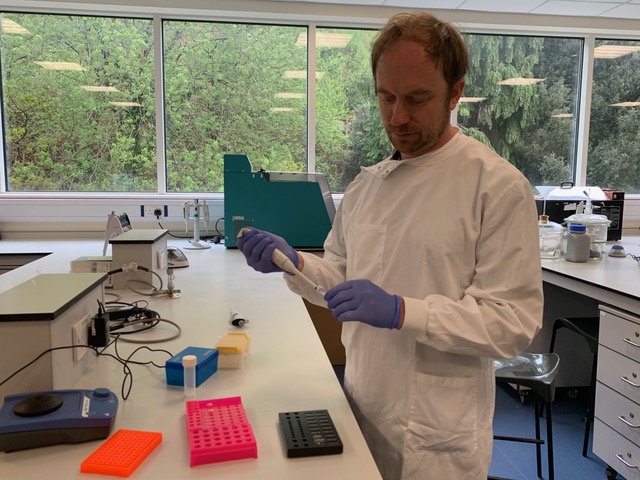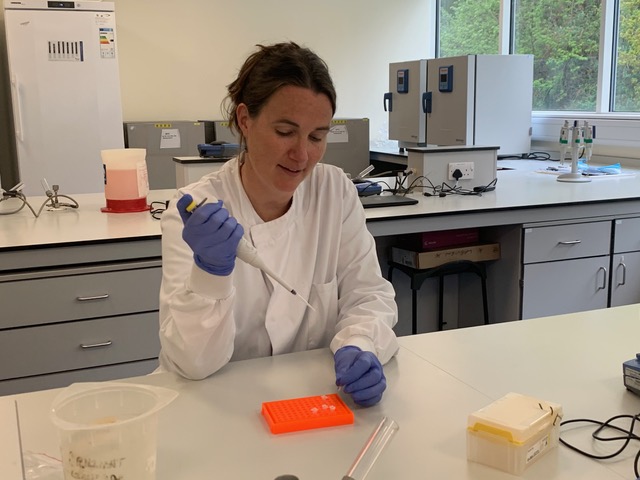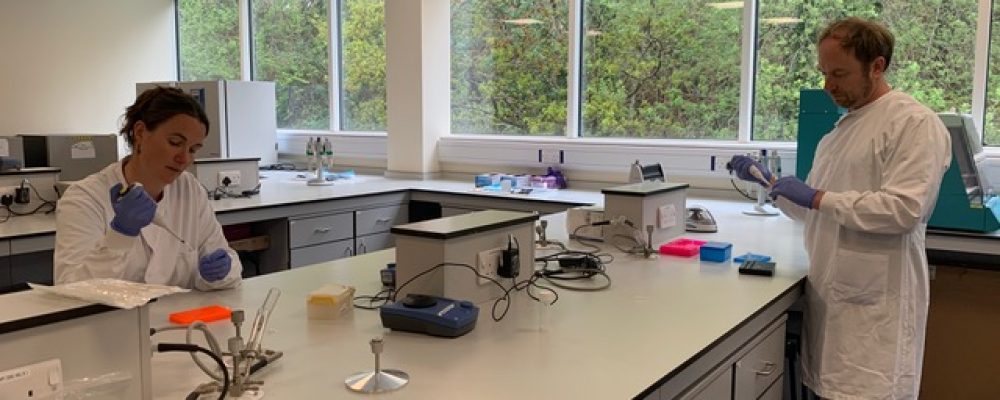Academics at the University of South Wales (USW) have developed a new rapid diagnostic test for Covid-19, to detect whether people are actively infected with the underlying SARS-CoV-2 virus.
The test, which is low cost and quick, uses a different method and chemicals to the current accredited tests, avoiding any supply bottlenecks for the components.
In just over a week the USW researchers, led by Dr Jeroen Nieuwland and Dr Emma Hayhurst, adapted a technique that they have been developing since 2016 for the diagnosis of urinary tract infections.
The new test is being evaluated in collaboration with Cwm Taf Morgannwg University Health Board. Over the past week a number of NHS staff members in the UK who reported having symptoms were asked to provide two swabs – one for the accredited Public Health Wales test and one for the new USW test – to confirm the accuracy and performance of the underlying molecular technology. The preliminary results suggest a strong correlation between the tests.
Once the initial evaluation, due to run until this weekend, has concluded, the team will be moving on to optimise their test for use at point of care. The molecular technology, which is based on loop-mediated isothermal amplification of DNA (or LAMP), lends itself to point-of-care testing because no complex sample processing or expensive equipment is required. The USW approach uses a novel swabbing and sample extraction technique which reduces cross-contamination and biosafety issues, and crucially reduces the time taken to process the results. The team already have already developed a prototype device which costs less than £100 to manufacture. This means that an affordable, mobile testing and analysis kit could shortly be available, allowing results to be available in just 20-30 minutes.
Dr Jeroen Nieuwland said: “We have been developing our diagnostic testing platform for the last few years, so we know that it works well for other infections such as urine tract infections (UTIs). We have modified this very sensitive and precise technique which is based on proven molecular (LAMP) technology. This is a fluorescent detection of nucleic acid amplification, similar to standard qPCR methods, but at constant temperature.
“It was designed to be a simple, quick and cost-effective test, which is suitable for the diagnosis of a range of infections, so our work over the last few years has enabled us to quickly switch it to detect the underlying virus for Covid-19.
“It is really pleasing to be able to support our frontline health workers, to help detect if they have the virus, and therefore either prevent further spread or to enable them to quickly return to work.”
Dr Emma Hayhurst said: “The really exciting thing is the potential for this technology to be used even wider than with health care workers. Our test could be used to help ramp up largescale community testing, running potentially hundreds of samples a day in our lab alone, with a much shorter turnaround time that the current method. It could also be developed for point of care which would, for example, offer a solution to people who perhaps live and work in more rural areas. The test could also be used in other care settings and industries, to help detect and prevent further spread of the virus. Crucially it is an affordable device which is simple to use, which should hopefully open up the options available for its use.”
Professor Kelechi Nnoaham, Covid Incident Director for Cwm Taf Morgannwg University Health Board said: “This is a great example of collaborative working with one of our academic partners to help develop a novel approach to testing for Covid-19. Working together we’ve been able to support Emma, Jeroen and their USW colleagues to quickly get the samples tested and I hope this will be a real game changer for our approach to testing in Cwm Taf Morgannwg.”






